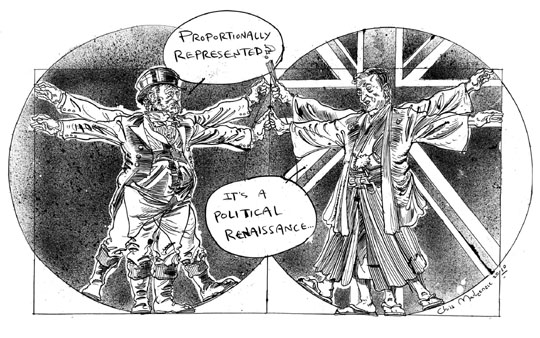In the months preceding the Lower House election last year, an ambitious Ichiro Ozawa, destined to become Democratic Party of Japan (DPJ) secretary general, headed to Britain to study the "Westminster system." His aim was to bring Japan's politics closer to that of Britain, to weaken the power of the bureaucrats and strengthen the position of politicians, particularly those in the DPJ, which looked increasingly likely to wrest power from the long-dominant Liberal Democratic Party (LDP) in the August poll.
Fast forward one year and Britain is headed in the opposite direction. An election earlier this month delivered disappointing results for the Labour Party, Conservatives and Liberal Democrats. Labour was ousted from government after 13 years, the Lib Dems failed to live up to expectations, and the Conservatives have still not received a clear mandate from the British people for 17 years and counting. A coalition deal between the Lib Dems and Conservatives has led to the possibility of electoral reform for Britain and a "Westminster system" more closely resembling the Japanese model.
Britain's current system for general elections, first-past-the-post — meaning that the candidate with the most votes wins the seat — has long been criticized for, among other things, ensuring that bigger parties win more seats per vote cast nationwide, and for "wasting" the votes of millions who cast ballots for candidates that come in second or third place. For these reasons, any consideration of reform in British politics seemed likely to include some form of proportional representation (PR), long seen as the holy grail for the Lib Dems and — until now — their only way out of "third party" purgatory and into government.


















With your current subscription plan you can comment on stories. However, before writing your first comment, please create a display name in the Profile section of your subscriber account page.